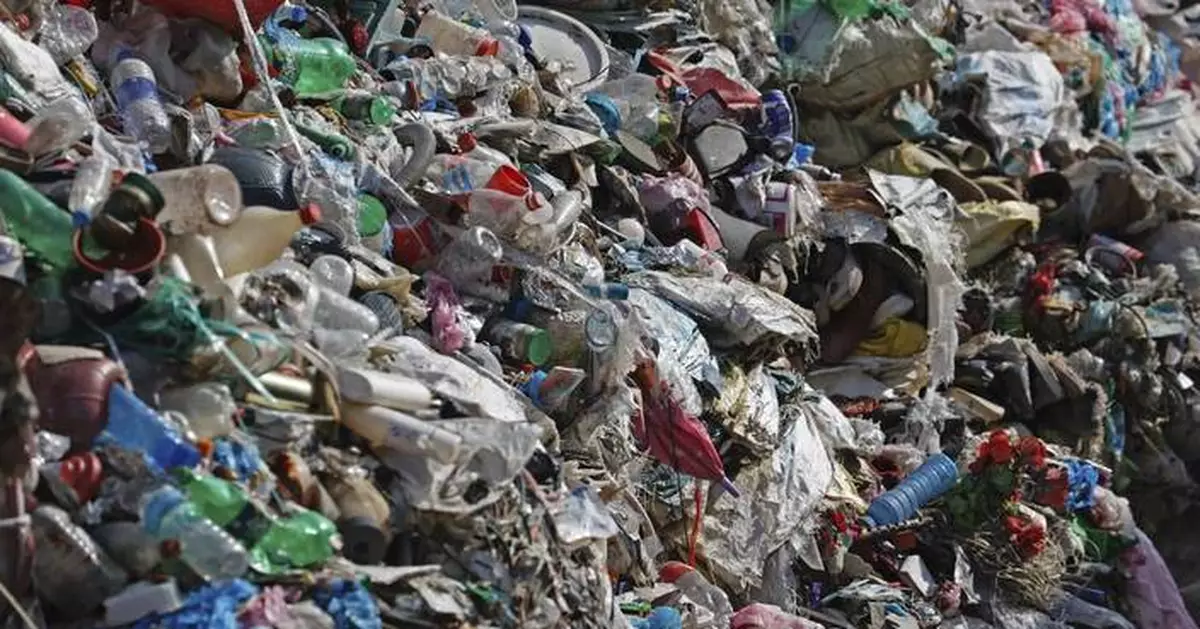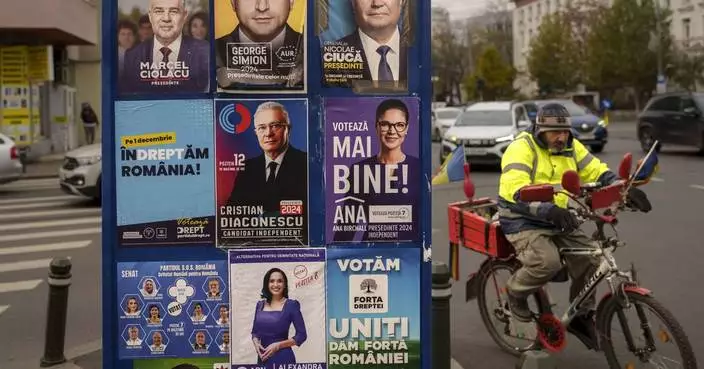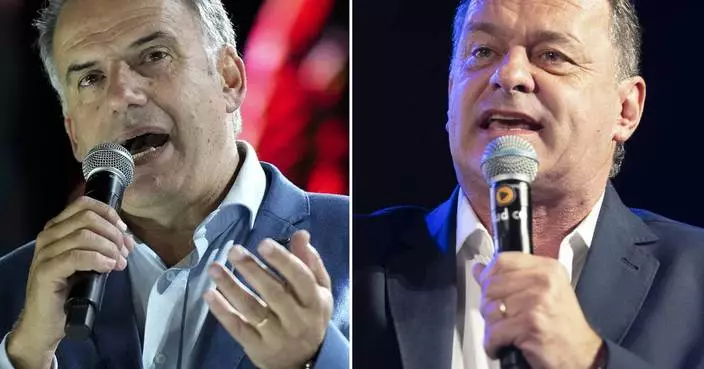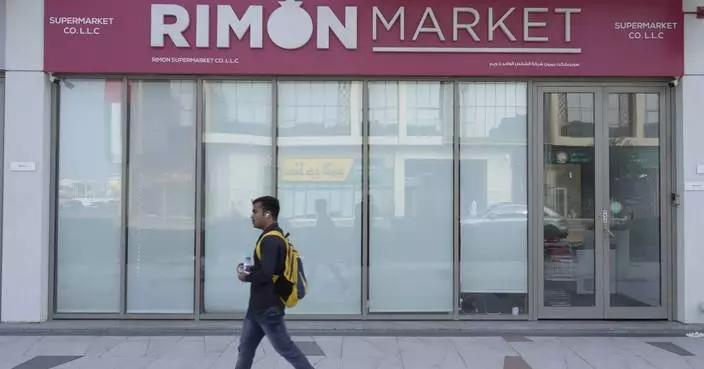A last round of negotiations on a legally binding treaty to address the global scourge of plastic pollution has opened in Busan, South Korea. Here's what to know about it:
National delegations still have a lot to hammer out before there is a treaty. Most contentious is whether there will be a limit on the amount of plastic that companies are allowed to produce.
Click to Gallery
FILE - A man walks past plastic waste strewn along at Enggros village beach in Jayapura, Papua province, Indonesia, Oct. 2, 2024. (AP Photo/Firdia Lisnawati, File)
FILE - Indian rag pickers look for reusable material at a garbage dump filled with plastic and other waste material on the outskirts of Jammu, India, April 22, 2024. (AP Photo/Channi Anand, File)
FILE - A pedestrian carries takeaway food in a plastic bag in Hong Kong, March 13, 2024.(AP Photo/Louise Delmotte, File)
FILE - Recyclable collectors work at the Lixao open-air dump in Santo Antonio do Descoberto, Goias state, Brazil, June 4, 2024. (AP Photo/Eraldo Peres, File)
Environment activists shout slogans during a rally calling for a strong global plastics treaty ahead of the fifth session of the Intergovernmental Negotiating Committee on Plastic Pollution which set to be held in Busan from Nov. 25 to Dec. 1, in Seoul, South Korea, Wednesday, Nov. 20, 2024. (AP Photo/Lee Jin-man)
Environment activists stage a rally calling for a strong global plastics treaty ahead of the fifth session of the Intergovernmental Negotiating Committee on Plastic Pollution which sets to be held from Nov. 25 to Dec. 1 in Busan, South Korea, Saturday, Nov. 23, 2024. (Son Hyung-joo/Yonhap via AP)
FILE - Garbage collected en route to Mount Everest is piled before it is sorted for recycling at a facility operated by Agni Ventures, an agency that manages recyclable waste, in Kathmandu, Nepal, June 24, 2024. (AP Photo/Sanjog Manandhar, File)
Led by Norway and Rwanda, 66 countries plus the European Union say they want to address the total plastic on Earth by controlling plastic design, production, consumption and what happens at the end of its life.
Some plastic-producing and oil and gas countries, including Saudi Arabia, vigorously oppose such limits.
Global plastics production is set to reach 736 million tons by 2040, up 70% from 2020, without policy changes, according to the Organisation for Economic Co-operation and Development.
Negotiators must also decide whether the treaty will reduce or eliminate single-use plastics. They'll have to resolve whether to end the use of hazardous chemicals in plastics and whether these steps will be mandated or merely encouraged.
Their common objective is to protect human health and the environment.
There are some things many countries agree on. They want provisions in a treaty to promote the redesign of plastic products so they can be recycled and reused. They want to invest to better manage plastic waste. They want to increase recycling rates and help waste pickers transition to safer jobs. There is agreement that there needs to be a mechanism to help countries pay for anything required of them.
Graham Forbes, who is leading a Greenpeace delegation in Busan, said his group could support an agreement that puts sensible guardrails in place to reduce the amount of plastic produced, eliminates toxic chemicals and protects people from the uncontrolled use of plastics. That's achievable, but will take political leadership and courage not seen yet in earlier negotiations, he added.
Frankie Orona, executive director of the Texas-based Society of Native Nations, said they demand a treaty that tackles the root causes of the crisis rather than just managing plastic waste.
“We must seize this moment and leave a legacy we can be proud of, with a non-toxic sustainable future for all children and our children's children," he said.
Industry leaders want an agreement that prevents plastic pollution by redesigning plastics to be reused, recycled and remade into new products. They say this will keep the materials in circulation and out of the environment.
Company executives said they'll support a treaty that recognizes plastics' benefits to society, while ending pollution.
“I would hate to miss this opportunity because we get fixated on issues that divide us rather than unite us in this purpose of ultimately addressing the issue of plastic pollution," said Steve Prusak, president and CEO of Chevron Phillips Chemical Company. "It’s a really critical time. We’re really hopeful that what we get out of the meetings will lead to practical, implementable policies and harmonization across the globe.”
U.N. Environment Programme Executive Director Inger Andersen said the treaty talks are a historic opportunity to land an agreement and course-correct, something “entirely within our reach.”
“We can sit and wait and negotiate and negotiate and negotiate. But meanwhile our oceans are chockablock with plastic,” she said.
The Associated Press’ climate and environmental coverage receives financial support from multiple private foundations. AP is solely responsible for all content. Find AP’s standards for working with philanthropies, a list of supporters and funded coverage areas at AP.org.
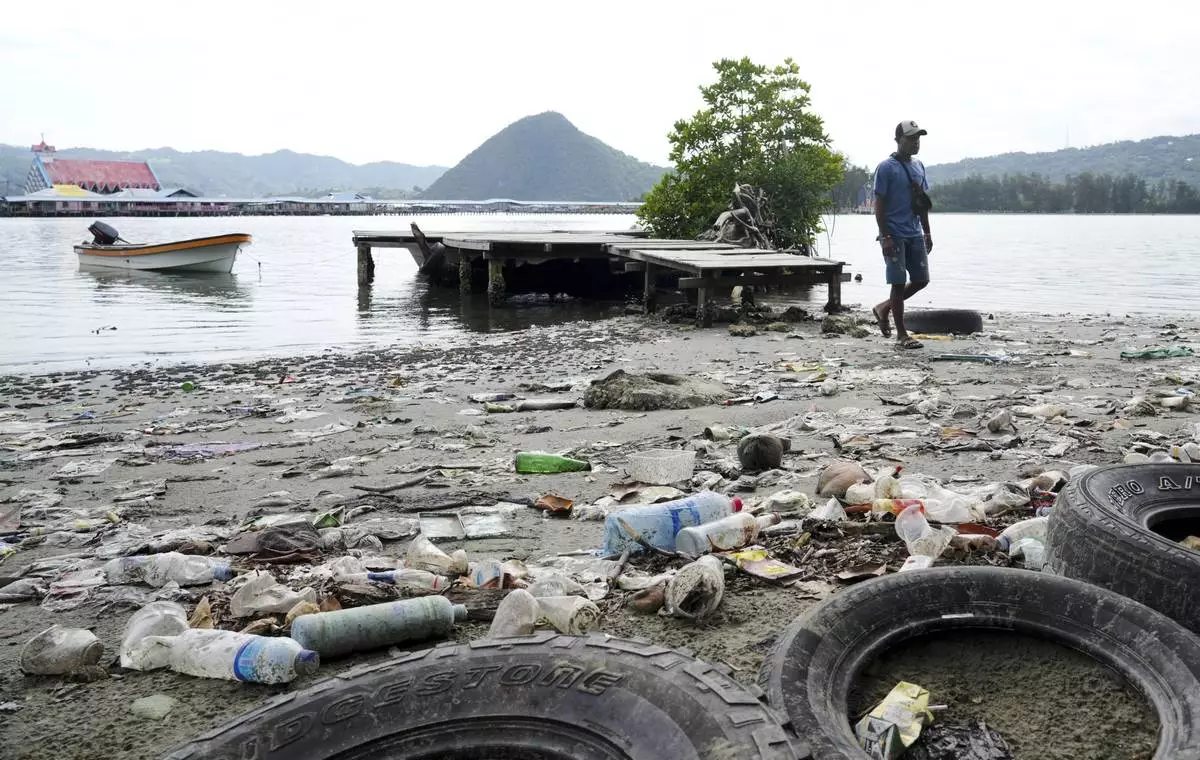
FILE - A man walks past plastic waste strewn along at Enggros village beach in Jayapura, Papua province, Indonesia, Oct. 2, 2024. (AP Photo/Firdia Lisnawati, File)
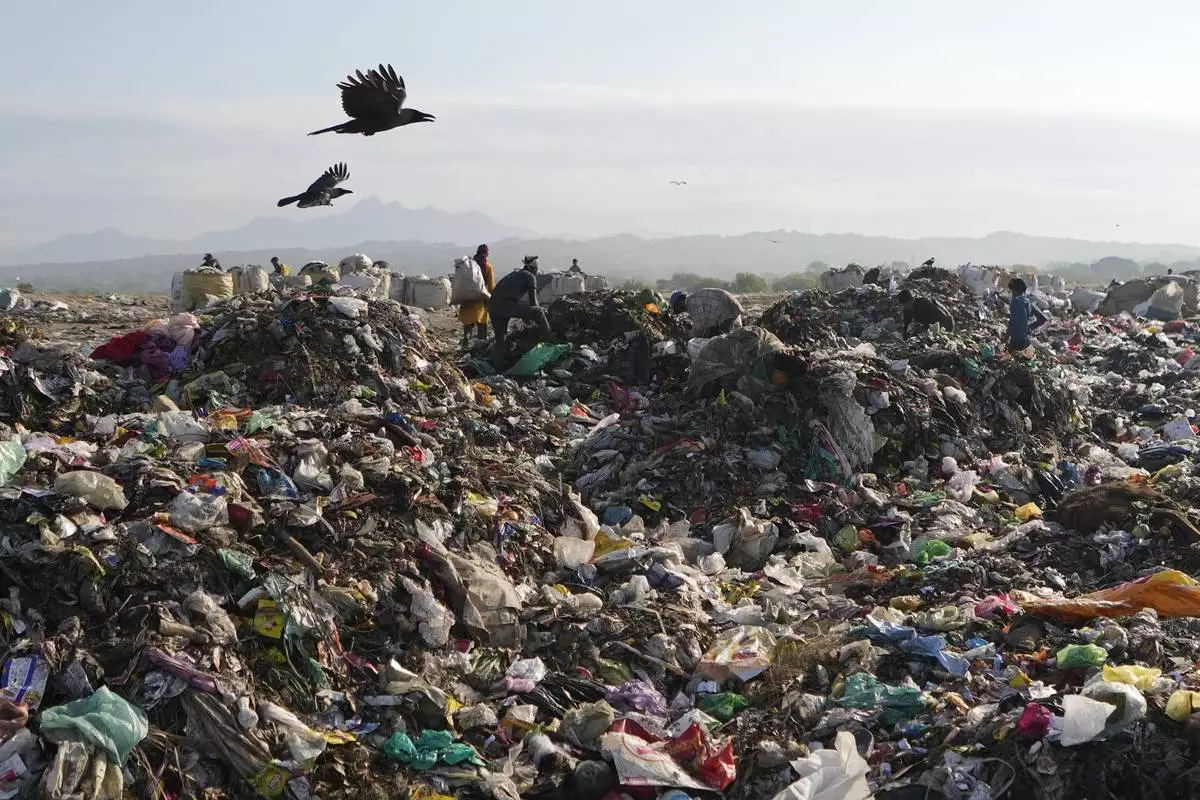
FILE - Indian rag pickers look for reusable material at a garbage dump filled with plastic and other waste material on the outskirts of Jammu, India, April 22, 2024. (AP Photo/Channi Anand, File)
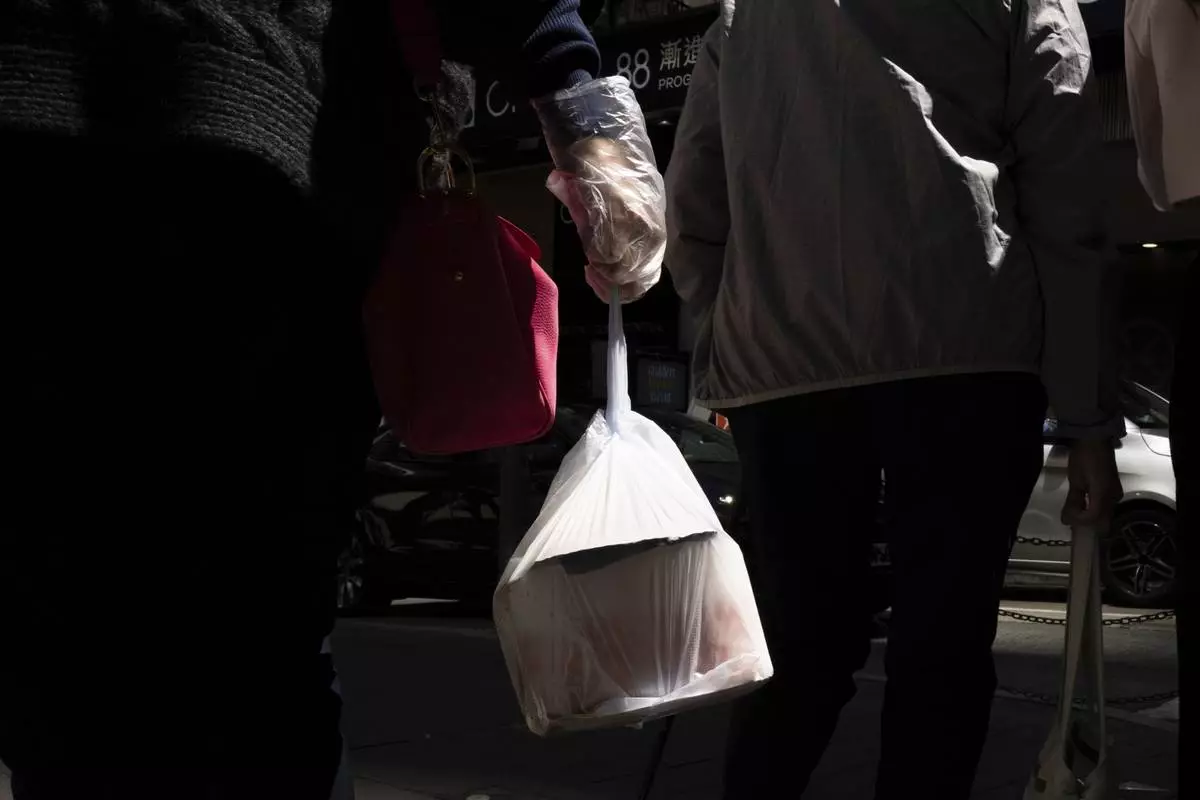
FILE - A pedestrian carries takeaway food in a plastic bag in Hong Kong, March 13, 2024.(AP Photo/Louise Delmotte, File)
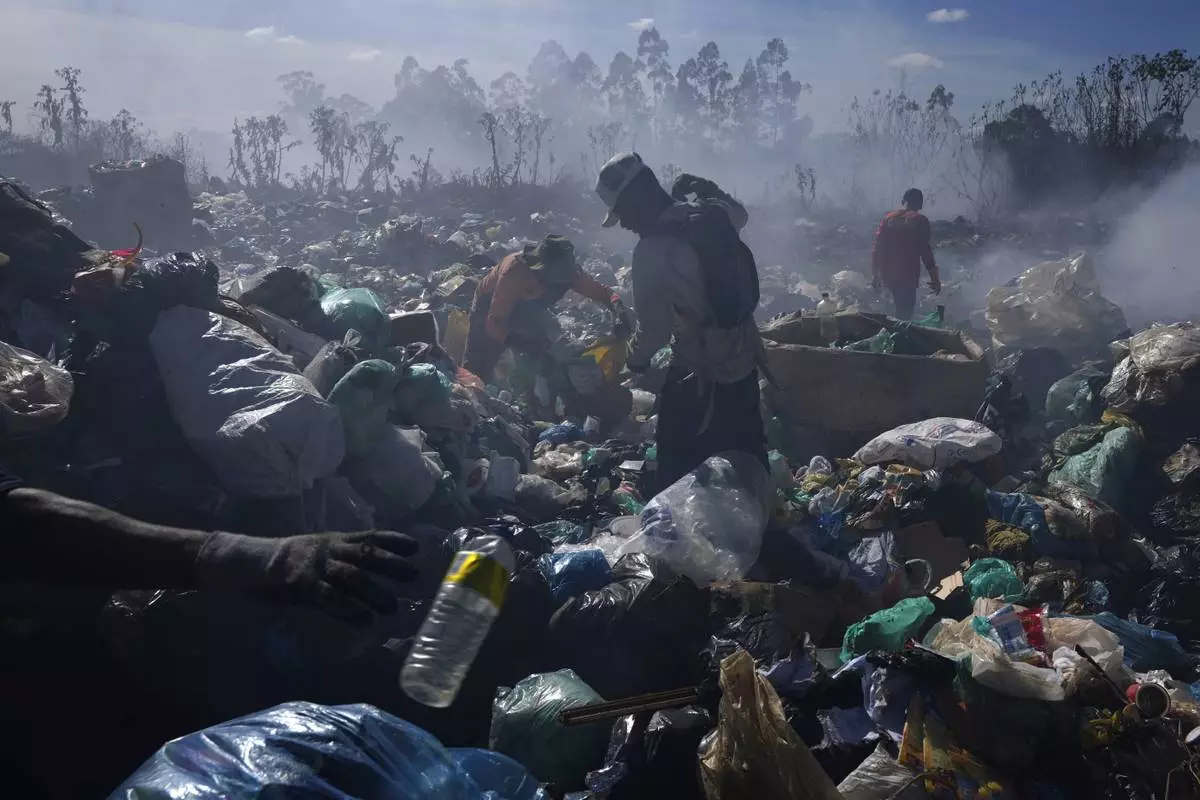
FILE - Recyclable collectors work at the Lixao open-air dump in Santo Antonio do Descoberto, Goias state, Brazil, June 4, 2024. (AP Photo/Eraldo Peres, File)
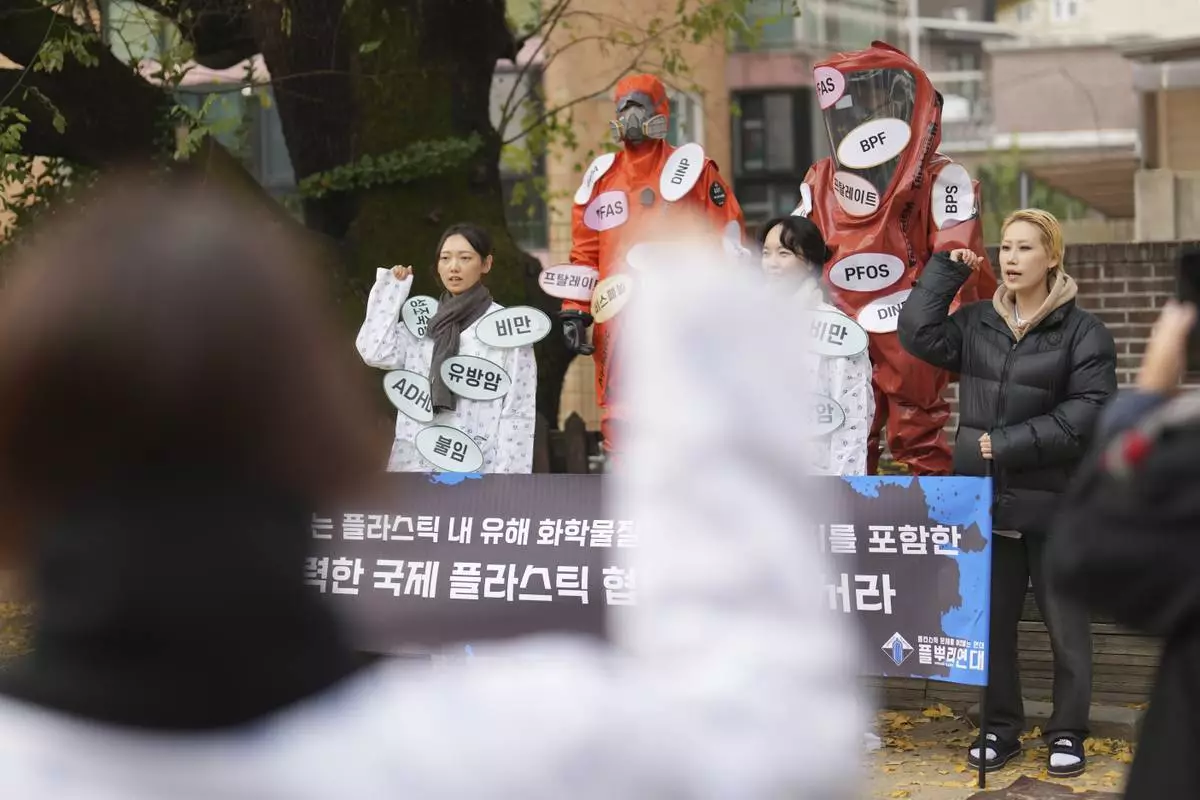
Environment activists shout slogans during a rally calling for a strong global plastics treaty ahead of the fifth session of the Intergovernmental Negotiating Committee on Plastic Pollution which set to be held in Busan from Nov. 25 to Dec. 1, in Seoul, South Korea, Wednesday, Nov. 20, 2024. (AP Photo/Lee Jin-man)
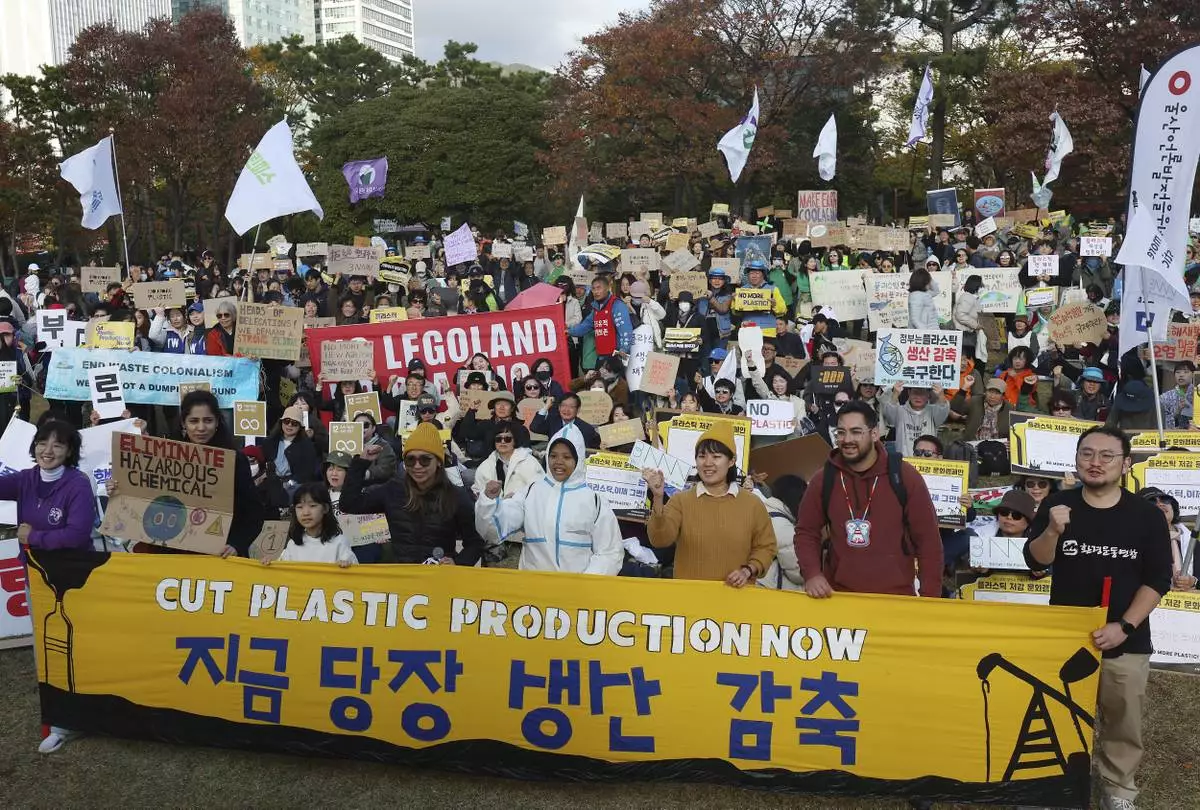
Environment activists stage a rally calling for a strong global plastics treaty ahead of the fifth session of the Intergovernmental Negotiating Committee on Plastic Pollution which sets to be held from Nov. 25 to Dec. 1 in Busan, South Korea, Saturday, Nov. 23, 2024. (Son Hyung-joo/Yonhap via AP)
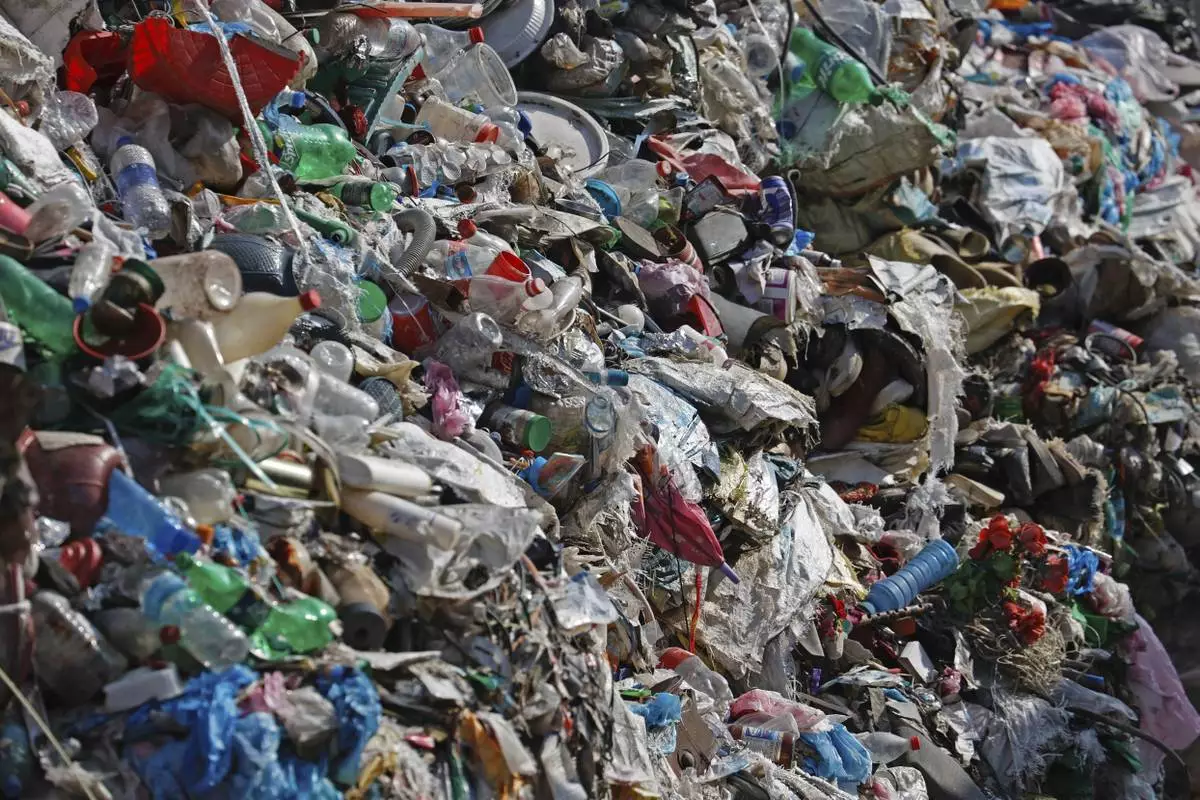
FILE - Garbage collected en route to Mount Everest is piled before it is sorted for recycling at a facility operated by Agni Ventures, an agency that manages recyclable waste, in Kathmandu, Nepal, June 24, 2024. (AP Photo/Sanjog Manandhar, File)
Negotiators gathered in Busan, South Korea, on Monday in a final push to create a treaty to address the global crisis of plastic pollution.
It's the fifth time the world's nations convene to craft a legally binding plastic pollution accord. In addition to the national delegations, representatives from the plastics industry, scientists and environmentalists have come to shape how the world tackles the surging problem.
The planet is “ choking on plastic, ” according to the United Nations. It's polluting lakes, rivers, oceans and people's bodies.
“Don’t kick the can, or the plastic bottle, down the road," U.N. Environment Programme Executive Director Inger Andersen said in a message aimed at negotiators.
This “is an issue about the intergenerational justice of those generations that will come after us and be living with all this garbage. We can solve this and we must get it done in Busan,” she said in an interview.
The previous four global meetings have revealed sharp differences in goals and interests. This week's talks go through Saturday.
Led by Norway and Rwanda, 66 countries plus the European Union say they want to address the total amount of plastic on Earth by controlling design, production, consumption and where plastic ends up. The delegation from the hard-hit island nation of Micronesia helped lead an effort to call more attention to "unsustainable” plastic production, called the Bridge to Busan. Island nations are grappling with vast amounts of other countries’ plastic waste washing up on their shores.
“We think it’s the heart of the treaty, to go upstream and to get to the problem at its source,” said Dennis Clare, legal advisor and plastics negotiator for Micronesia. “There’s a tagline, ‘You can’t recycle your way out of this problem.’”
Some plastic-producing and oil and gas countries, including Saudi Arabia, disagree. They vigorously oppose any limits on plastic manufacturing. Most plastic is made from fossil fuels. Saudi Arabia is the world’s largest exporter of primary polypropylene, a common type of plastic, accounting for an estimated 17% of exports last year, according to the Plastics Industry Association.
China, the United States and Germany led the global plastics trade by exports and imports in 2023, the association said.
The plastics industry has been advocating for a treaty focused on redesigning plastic products, recycling and reuse, sometimes referred to as “circularity.” Chris Jahn, International Council of Chemical Associations secretariat, said negotiators should focus on ending plastic waste in the environment, not plastic production, to get a deal. Many countries won’t join a treaty if it includes production caps, he said.
To continue to progress and grow as a global economy, there are going to be more plastics, Jahn added.
“So we should strive then to keep those plastics in the economy and out of the environment,” Jahn said.
The United States delegation at first said countries should develop their own plans to act, a position viewed as favoring industry. It changed its position this summer, saying the U.S. is open to considering global targets for reductions in plastic production.
Environmental groups accused the U.S. of backtracking as negotiations approached.
Center for Coalfield Justice executive director Sarah Martik said the United States is standing on the sidelines rather than leading, putting “their thumb on the scale throughout the entirety of the negotiations.” She hopes this does not derail other countries’ ambition.
The U.S. Environmental Protection Agency released a national strategy to prevent plastic pollution Thursday, but Martik said she thinks too many of the measures are voluntary to make a difference.
Democratic U.S. Sen. Jeff Merkley, of Oregon, said it's a mistake for the United States to settle for the lowest common denominator proposals, just to get some kind of agreement.
Luis Vayas Valdivieso, the committee chair from Ecuador, recently proposed text for sections where he thinks the delegations could agree.
The production and use of plastics globally is set to reach 736 million tons by 2040, up 70% from 2020, without policy changes, according to the intergovernmental Organisation for Economic Co-operation and Development.
Research published in Science this month found it is still possible to nearly end plastic pollution. The policies that make the most difference are: mandating new products be made with 40% post-consumer recycled plastic; limiting new plastic production to 2020 levels; investing significantly in plastic waste management, such as landfills and waste collection services and implementing a small fee on plastic packaging.
The treaty is the only way to solve plastic pollution at this scale, said Douglas McCauley, professor at UC Santa Barbara and UC Berkeley. McCauley co-led the research.
Margaret Spring, chief conservation and science officer for Monterey Bay Aquarium, said plastic pollution used to be considered largely a waste problem. Now it is widely viewed as an existential crisis that must be addressed, said Spring, who represents the International Science Council at the negotiations.
“I’ve never seen people’s understanding of this issue move as fast, given how complex the topic is,” she said. “It gives me hope that we can actually start moving the dial.”
The Associated Press’ climate and environmental coverage receives financial support from multiple private foundations. AP is solely responsible for all content. Find AP’s standards for working with philanthropies, a list of supporters and funded coverage areas at AP.org.
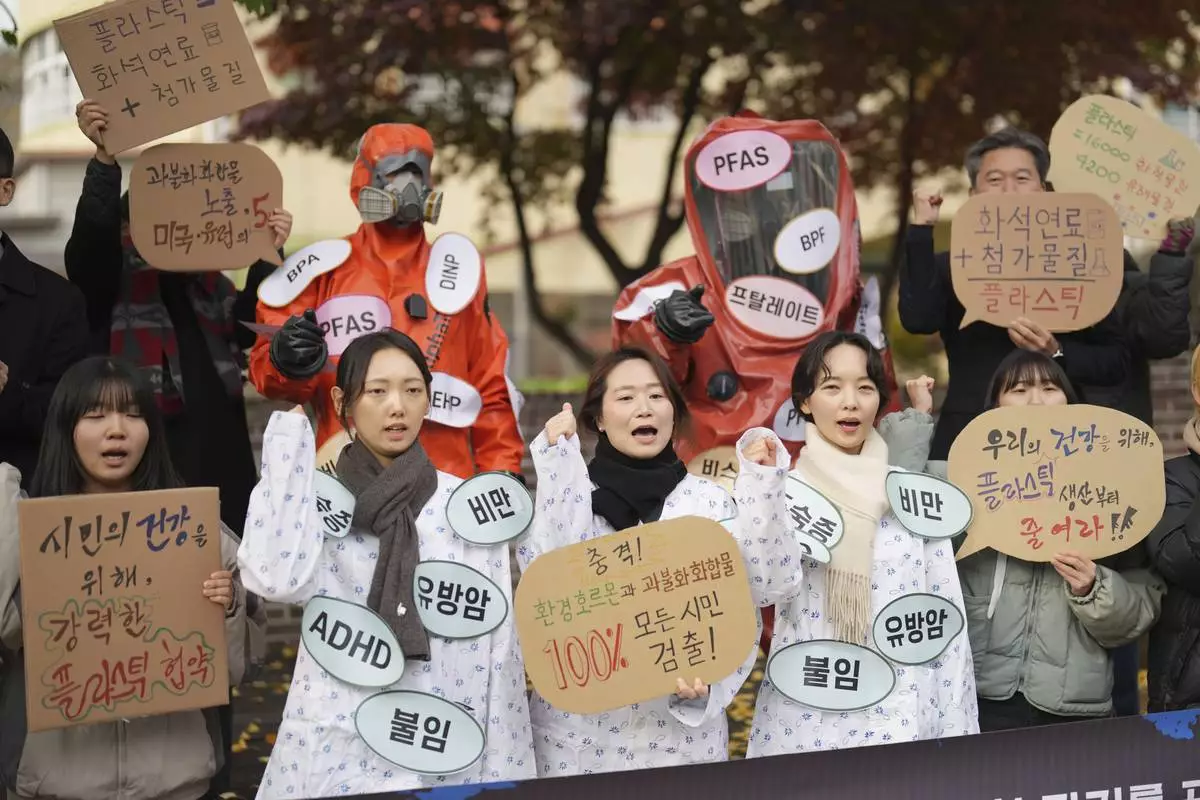
Environment activists shout slogans during a rally calling for a strong global plastics treaty ahead of the fifth session of the Intergovernmental Negotiating Committee on Plastic Pollution which sets to be held in Busan from Nov. 25 to Dec. 1, in Seoul, South Korea, Wednesday, Nov. 20, 2024. (AP Photo/Lee Jin-man)
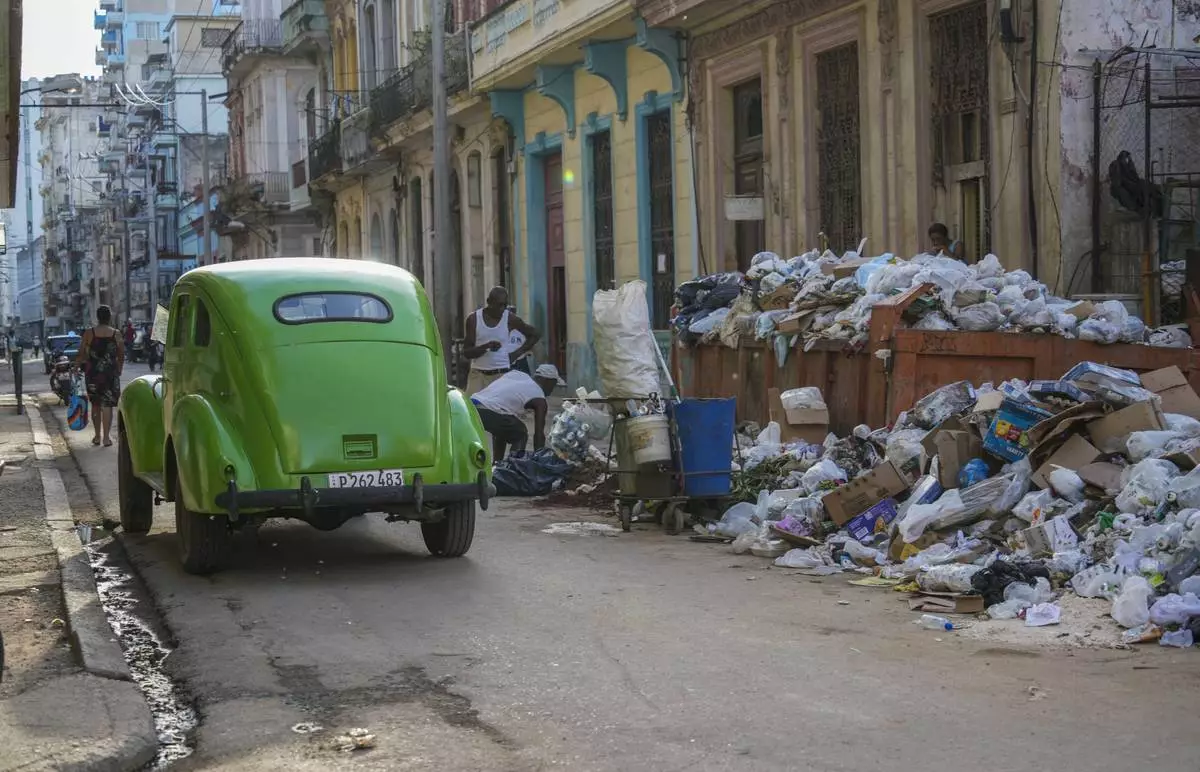
FILE - A classic American car drives past garbage in Havana, Cuba, Sept. 24, 2024. (AP Photo/Ramon Espinosa, File)
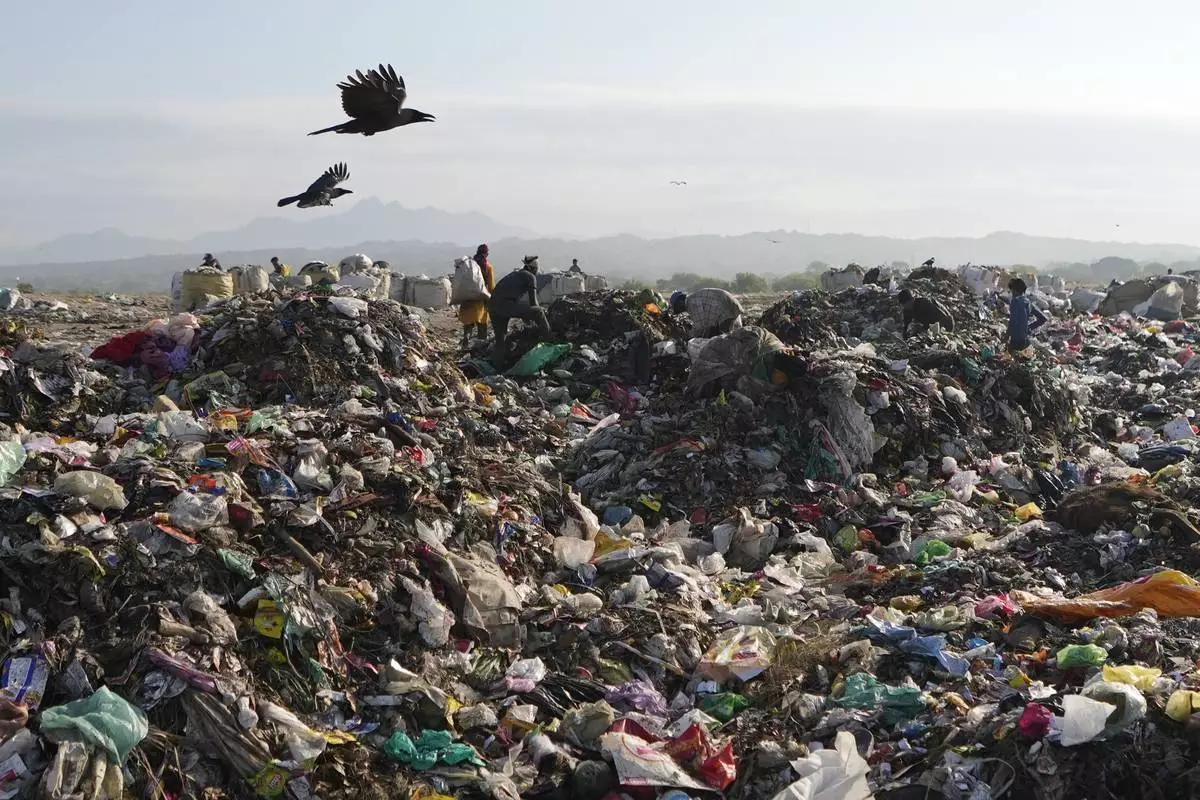
FILE - Indian rag pickers look for reusable material at a garbage dump filled with plastic and other waste material on the outskirts of Jammu, India, April 22, 2024. (AP Photo/Channi Anand, File)
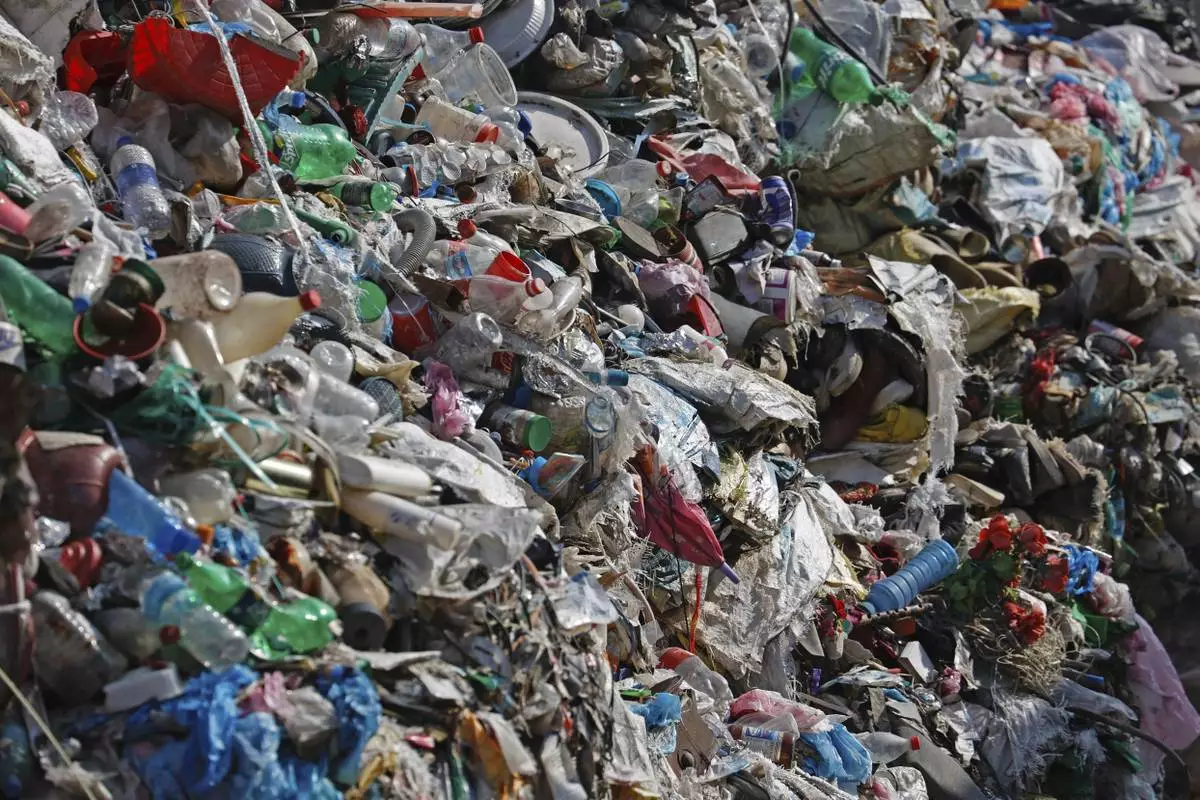
FILE - Garbage collected en route to Mount Everest is piled before it is sorted for recycling at a facility operated by Agni Ventures, an agency that manages recyclable waste, in Kathmandu, Nepal, June 24, 2024. (AP Photo/Sanjog Manandhar, File)
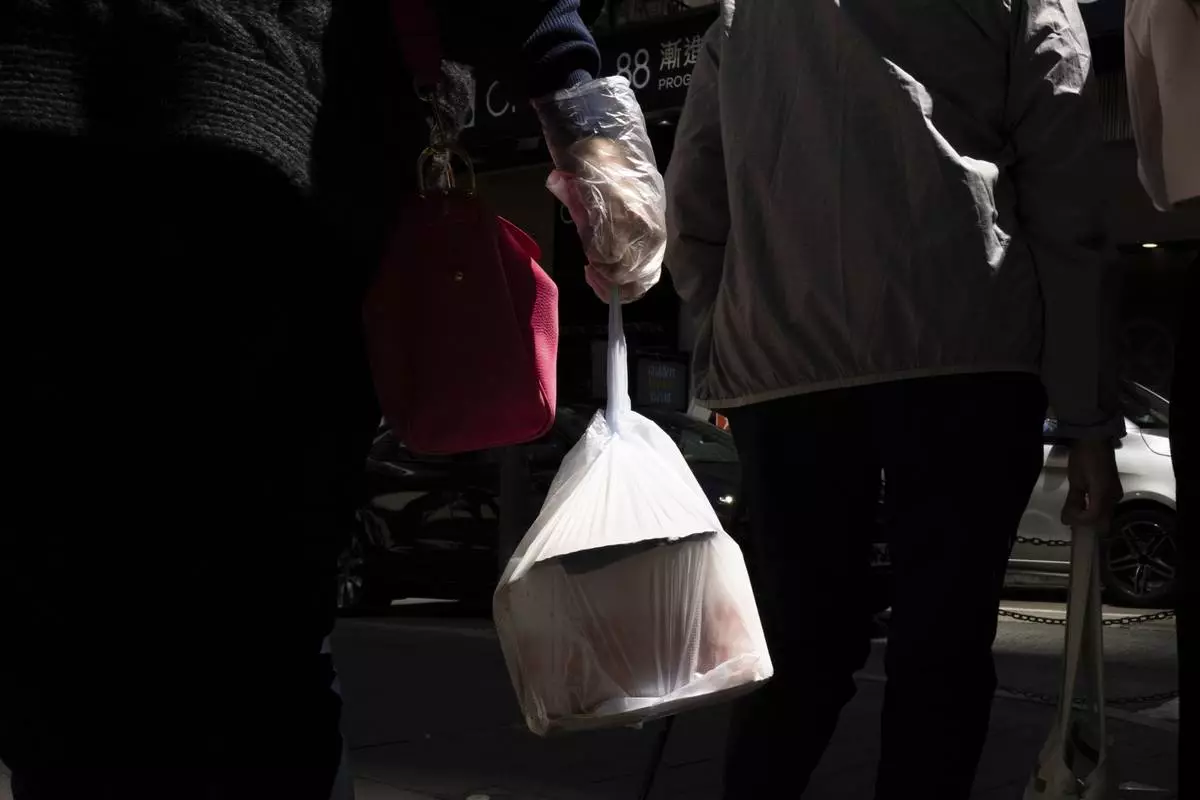
FILE - A pedestrian carries takeaway food in a plastic bag in Hong Kong, March 13, 2024.(AP Photo/Louise Delmotte, File)
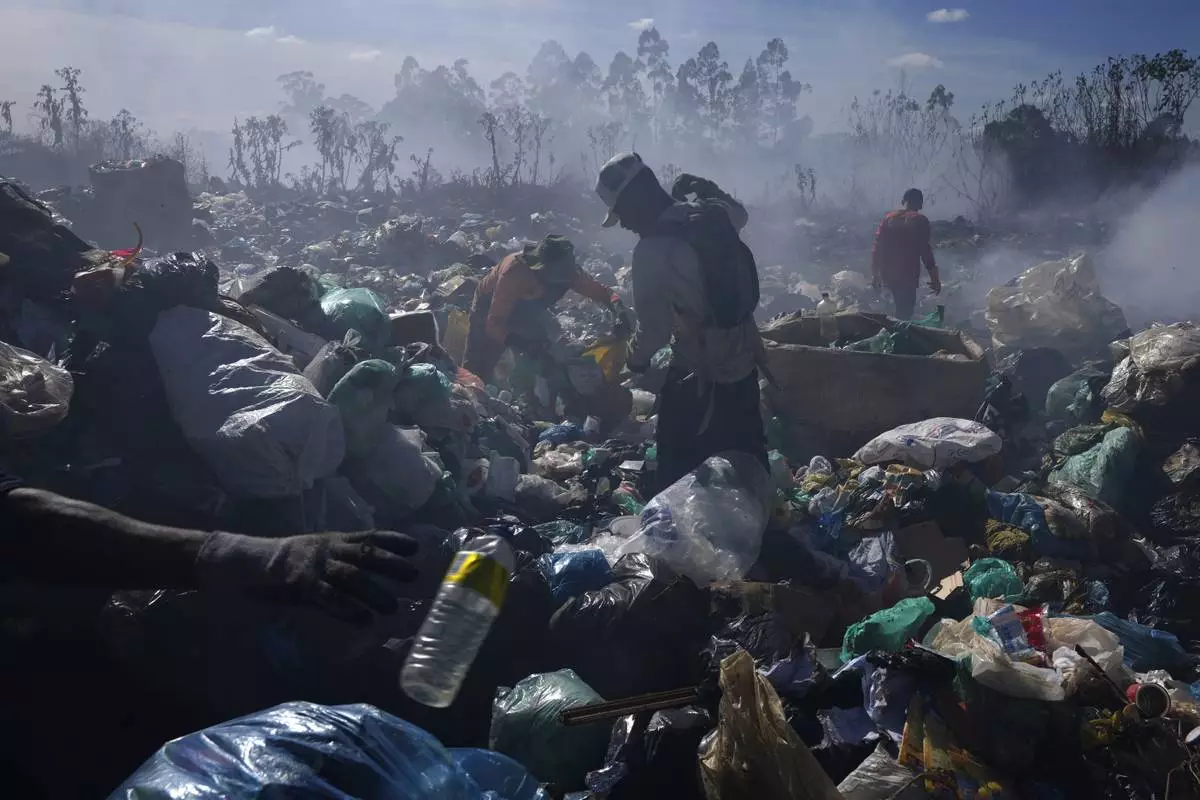
FILE - Recyclable collectors work at the Lixao open-air dump in Santo Antonio do Descoberto, Goias state, Brazil, June 4, 2024. (AP Photo/Eraldo Peres, File)
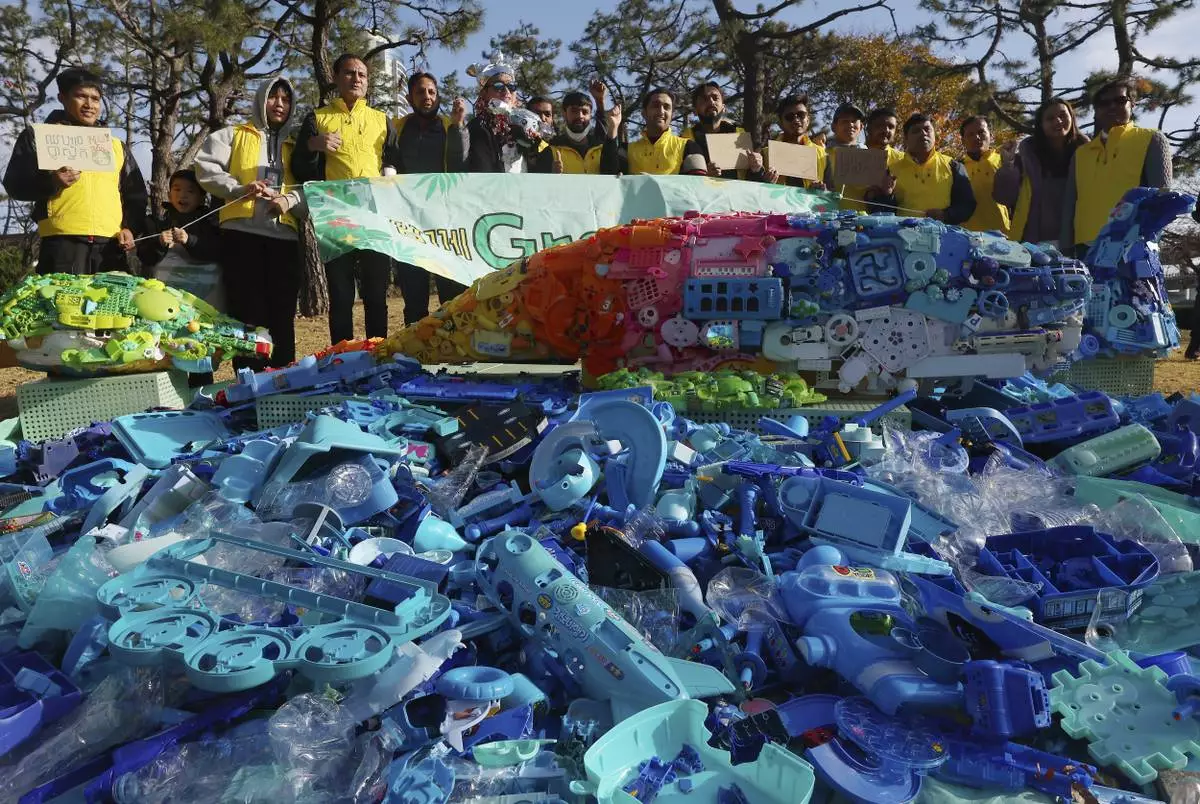
Environment activists stage a rally calling for a strong global plastics treaty ahead of the fifth session of the Intergovernmental Negotiating Committee on Plastic Pollution which sets to be held from Nov. 25 to Dec. 1 in Busan, South Korea, Saturday, Nov. 23, 2024. (Son Hyung-joo/Yonhap via AP)









